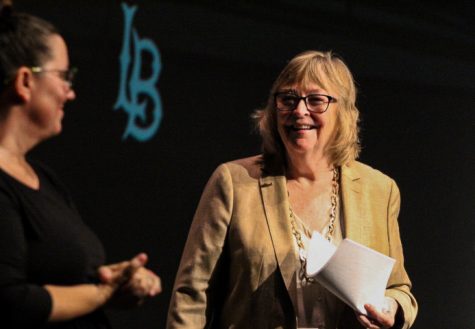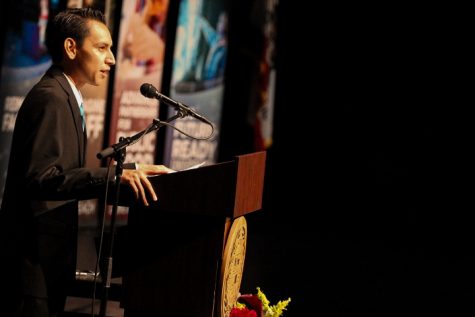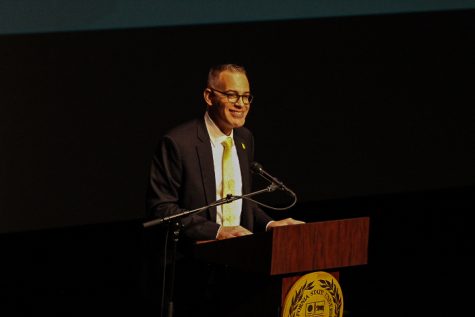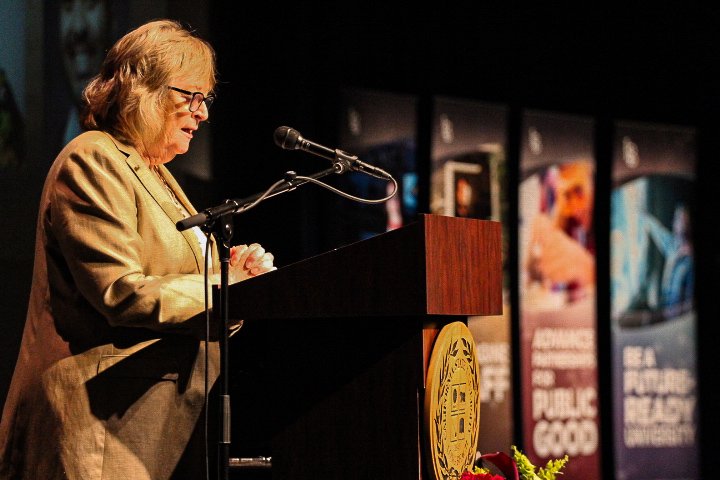President Jane Close Conoley and other Long Beach State academic leaders discussed the implementation of current and future programs which will contribute to the plan for Beach 2030 at the 2022 Annual CSULB Convocation.
“The world around us is changing even more quickly than we predicted when we started the Beach 2030 initiative,” Conoley said.
CSULB launched the Beach 2030 plan in 2018 as a ten-year roadmap for “future-focused planning.” This plan is to help the university better embrace and support the economic and demographic changes within the Beach community.
“Higher education is changing in large measure because our demographics are changing,” said Karyn Scissum Gunn, provost of academic affairs.

As of fall 2021, 53.64% of enrolled students at Long Beach State identified as members of a minority race, according to the institutional research and analytics office. By 2034, Gunn said it is predicted that most traditional college-aged adults (ages 18 through 24) will be non-white.
“These shifting demographics will impact all facets of higher education throughout the nation,” Gunn said. “From the way we recruit to the way we teach.”
On top of a growing racially diverse student body, Conoley addressed the economic struggles of a post-pandemic world and developing national trends “that seem likely to undermine [the university’s] commitments to success.”
“How do we reshape our university to be responsive to these forces?” Conoley said. “We have a Beach 2030 commitment to re-imagine our faculty and our staff and build a future-ready university.”
The ten-year Beach 2030 plan was built on five strategic priorities: engage all students, expand access to higher education, promote intellectual achievement, create a sense of community and cultivate resilience.

ASI president, Isaac Julian, said he aims to create the same inclusive and supportive environment for CSULB students he experienced during his time with ASI.
“I still remember the disorienting feeling I got during my first semester here. It was difficult trying to stay connected to campus,” Julian said.
The ASI program is committed to serving students and giving them a place where they feel they belong. Julian said his top priority as ASI president was to support students, especially those experiencing hardships.
“I encourage you to build up our students to continue becoming the leaders of tomorrow,” Julian said. “Every student has the potential to be great.”

Jeffrey D. Cook, interim vice president for university relations and development, “spilled the beans” for the university’s announcement next month to raise $275 million for the No Barriers campaign.
This campaign complemented the Beach 2030 plan to make higher education accessible to students.
“Indeed, there should be no barriers to affording a college education,” Cook said.
Gunn listed faculty members and projects that have helped the university reach its 2030 goal. One was Dr. Keith Claybrook, Jr., and his handbook called Back to Basics, a tool to help students prepare for college courses.
The Caminos Project was launched by the College of Education to promote teaching career paths in Latinx youth and create a culturally aware classroom. The Resilience Project was established by the College of Natural Sciences and Mathematics to encourage students in their science and mathematical studies.
“If we all lead with equity, we will learn, we will adapt, we will grow,” Gunn said.




